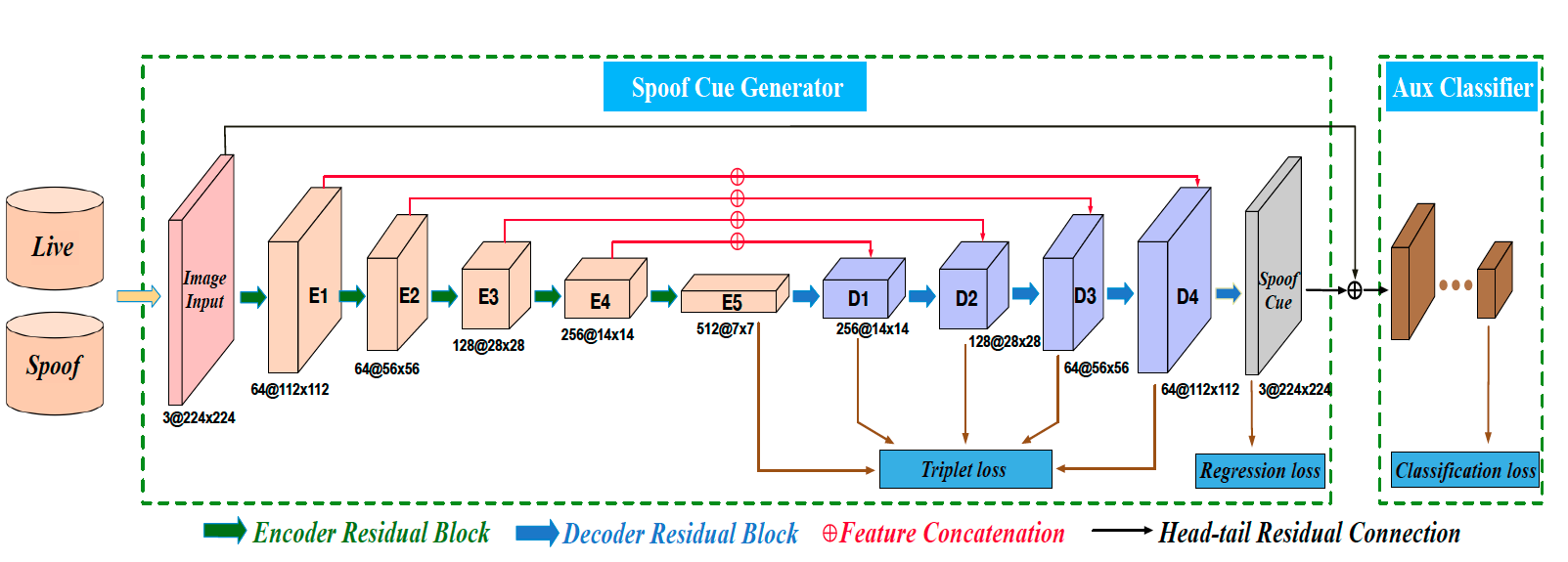LGSC-for-FAS
This repository contains code of "Learning Generalized Spoof Cues for FaceAnti-spoofing (LGSC)", which reformulate face anti-spoofing (FAS) as an anomaly detection problem and learn the discriminative spoof cues via a residual-learning framework.
Framework
FaceForensics Benchmark
Based on the LGSC, we achieved 1st Place on FaceForensics benchmark

Dataset and Preprocessing
We use two different compression rates: c23(medium compression) and c40(high compression) videos in FaceForensics++ dataset as our training data. As a preprocessing step we extract crop faces frame from raw videos and totally we get 0.96 million face frames, which contrains 0.16 million pristine frames and 0.8 million manipulated frames. Further, we balanced the proportion of positive and negative samples during training.
Technology Detail
Our deep network is implemented on the platform of PaddlePaddle(dygraph).
- Download and preproces the dataset
FaceForensics/data
├── manipulated_sequences
│ └── DeepFakeDetection
│ └── Deepfakes
│ └── Face2Face
│ └── FaceSwap
│ └── NeuralTextures
├── original_sequences
│ └── actors
│ └── youtube
│ └── c23
│ └── c40
│ └── images
├── train_add_train.txt
├── train_val_train.txt
└── faceforensics_benchmark.txt
- Download and convert imagenet pretrained model
python convert.py
./pretrained
├── resnet18-5c106cde.pth
└── resnet18-torch.pdparams
- Train
python train.py
- Test
python test.py
Citation
@inproceedings{
feng2020deep,
title={Learning Generalized Spoof Cues for Face Anti-spoofing},
author={Haocheng Feng and Zhibin Hong and Haixiao Yue and Yang Chen and Keyao Wang and
Junyu Han and Jingtuo Liu and Errui Ding},
year={2020},
eprint={2005.03922},
archivePrefix={arXiv},
primaryClass={cs.CV}
}
